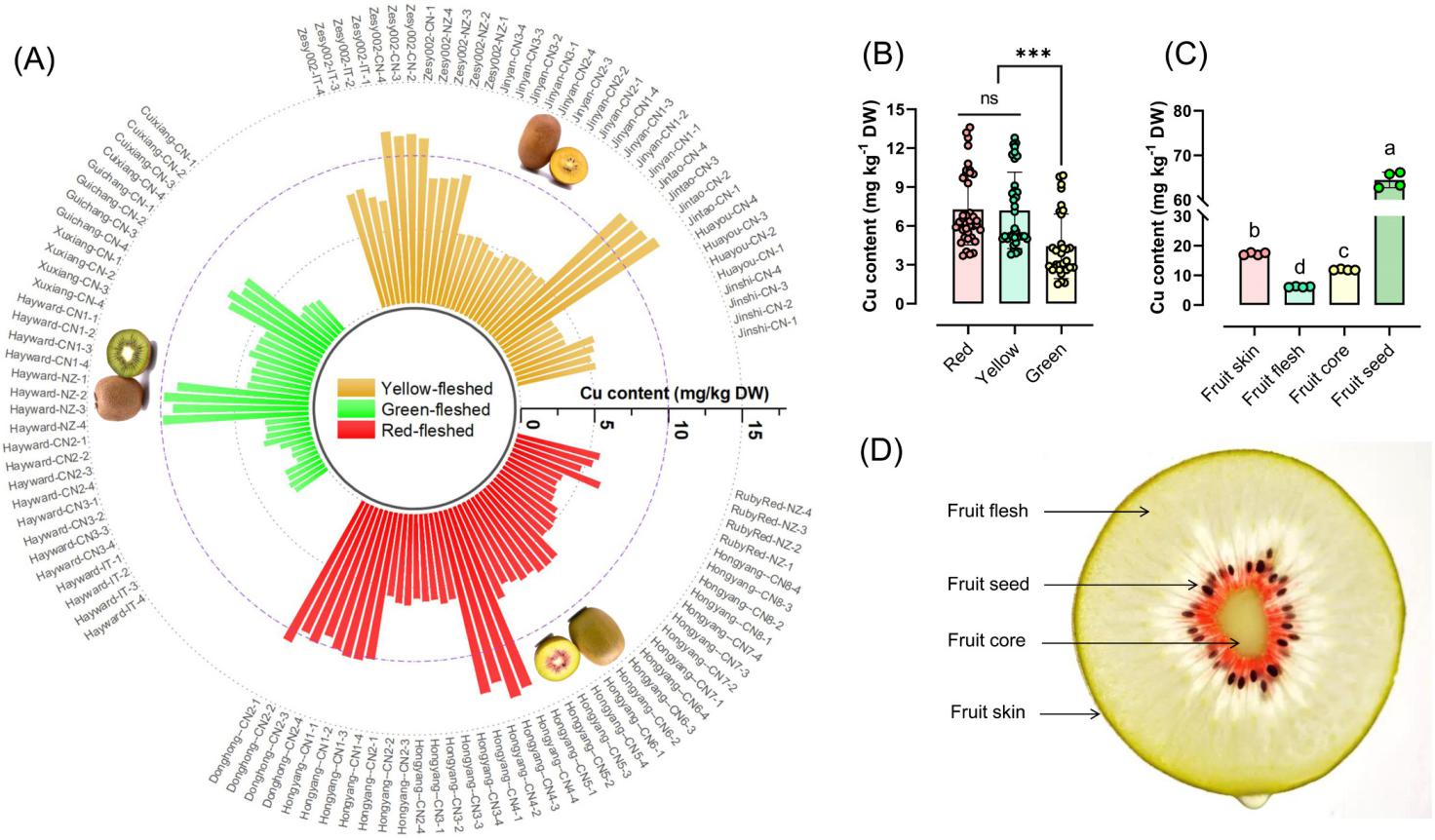Name:Caihong Zhong
Tell:
Email:zhongch@wbgcas.cn
Organization:Wuhan Botanical Garden
Increased Vitamin C Ameliorates Copper Toxicity in Kiwifruit
2023-10-19
Kiwifruit is one of the most commercially available fruits fully packed with various nutrients. Over the last decade, the cultivation of kiwifruit has been plagued by a severe epidemic caused by Pseudomonas syringae pv. actinidiae (Psa), which mostly depends on spraying kiwifruit plants with Cu-based compounds and antibiotics.
Excess copper (Cu) heavy metals in the environment and food have greatly threatened food safety and human health. Ascorbic acid (AsA), commonly known as vitamin C, with a range of functions involving the detoxification of reactive oxygen species (ROS) and maintaining plant growth and human health. Understanding whether and how AsA enhance the Cu tolerance is importance for Cu toxic remediation in kiwifruit.
Supervised by Prof. ZHONG Caihong, Prof. LI Dawei and Research assistant CHEN Peng from Wuhan Botanical Garden, Research assistant LIU Xiaoying and a graduated master CHENG Chang revealed a strategy that AsA mitigated the damage caused by Cu toxicity in kiwifruit.
In the study, the Cu content of 108 kiwifruit samples of 27 cultivars worldwide was assessed, showing that the average Cu content of kiwifruit with red- or yellow-fleshed was significantly higher than that of green-fleshed, and the Cu content level in fruit flesh and cores being significantly lower than that in fruit skin and seeds.
Further, A high concentration of Cu resulted in an obvious damage in the kiwifruit plants, which was mitigated when the kiwifruit plants were feeding with exogenous AsA. The transcriptome analysis showed that the expression of GDP-L-galactose phosphorylase3 (AcGGP3) was induced by Cu stress.
They obtain AcGGP3 transgenic kiwifruit, which with higher AsA content (8.4- to 12.2-fold) than that of wild-type. The research showed that increased AsA content in transgenic lines could mitigate Cu toxicity, resulted in mitigated Cu stress inhibition of photosynthesis, effectively scavenged excess ROS, and altered stress-related gene expression of kiwifruit under Cu treatment.
Taken together, researchers have developed a strategy to enhance kiwifruit’s tolerance to Cu through transgenic mediation by enhancing the endogenous AsA content in kiwifruit plants, and provided new insights into the mechanism of Cu detoxification of kiwifruit.
This research was financially supported by the following grants: The earmarked fund for CARS; Hubei Province Natural Science Fund Project of Outstanding Youth Project Awarded to LI Dawei; Hubei Hongshan Laboratory and Precision Seed Design and Breeding. Results have been published in the Journal of Hazardous Materials entitled “Increased ascorbic acid synthesis by overexpression ofAcGGP3ameliorates copper toxicity in kiwifruit”.

Copper concentrations in major kiwifruit cultivars around the world (Image by LIU Xiaoying)